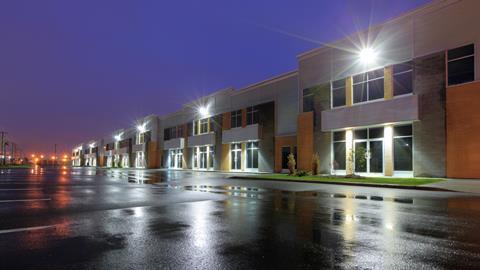Around 39% of logistics occupiers across Europe expect to expand their real estate footprint over the next year, despite the challenges of rising costs and economic uncertainty.

These were the main conclusions of the third European real estate logistics census, which was conducted over the summer of 2023 by supply chain market analysts Analytiqa on behalf of Tritax EuroBox and international real estate advisor Savills.
Some 256 occupiers, investors, developers, landowners, asset managers, consultants and agents across the pan-European market responded to the survey.
According to respondents, Germany and Spain are the top markets for expansion over the next three years. ESG has moved from ambition to action with a focus on the ‘E’, but there’s more to do on the ‘S’.
Automation and reshoring continue to be priorities, but reduced focus on stock-building as pandemic risks have receded. Meanwhile, electric vehicles are expected to be the most game-changing technology to impact the supply chain over the next three years, with investment already well underway.
Mission critical
Phil Redding, CEO of Tritax EuroBox, said: 'Results from our third European Real Estate Logistics Census reflect the challenging macro-environment that we’re operating in today, with occupiers identifying rising costs, economic uncertainty and labour supply as significant challenges for their businesses.
'Despite this, 39% expected their industrial and logistics real estate take-up to increase this year – reflecting its mission-critical role in their supply chain and overall operations.'
The macro-environment is seen to be stabilising but remains tough. Some occupiers are delaying business expansion plans in the short term, but only 3% are ‘on hold’ indefinitely.
Some 42% of occupiers view the macro-environment as more favourable than six months ago, compared with 35% a year ago.
However, rising costs (42%) and economic uncertainty (28%) are the top two factors affecting occupiers this year, followed by labour availability (21%).
Marcus de Minckwitz, head of EMEA industrial and logistics for Savills, added: 'Despite ongoing macro-economic headwinds, the logistics sector has remained resilient, and it is positive to see that there is light at the end of the tunnel when it comes to overall sentiment.
'This will encourage activity in both the occupational and investment markets, particularly in key locations such as Germany and Spain, which are set to see expansion over the next three years.'
Take-up
Take-up reached 13.2 million m2 in H1 2023 – a decline on the record 21 million m2 take-up in the pandemic era, but ahead of the 11.7 million m2 of 2018 and 2019.
Vacancy rates rose to 4.7% across Europe in H1 but, despite this increase, supply remains relatively constrained, driving an average rental growth of 10% over the last year.
Over the next twelve months, 39% of occupiers expect their take-up to increase compared to 25% a year ago. Only 11% expect it to fall compared to 30% in 2022.
in terms of asset type, 83% of those looking for new warehouse space are considering mega- (>40,000 m2) or mid-boxes (10,000-39,999 m2) compared to 78% in 2022.
Within the subsectors, retailers want space today: 46% expect to expand within the next twelve months, driven by the growth of e-commerce and continued adoption of the omni-channel model.
By contrast, manufacturers have a longer-term horizon, likely driven by short-term pressures including high inflation: 43% plan to expand in 3+ years.
Over the next three years, technology remains a focus, along with ESG: 33% intend to invest in building-level automation; 25% to shorten their supply chain; 25% to improve supply chain visibility and 28% to reduce CO2-intensive transportation.
Added Redding: 'We’re seeing technology advancements continue to drive supply chain evolution with occupiers investing across a diverse range of technologies, including electric vehicles and automation, as they seek efficiency and productivity gains alongside improved carbon performance.
'Looking ahead, the social element of ESG is likely to rise up the agenda for occupiers, as they seek to attract and retain the best people in a competitive European labour market.'










